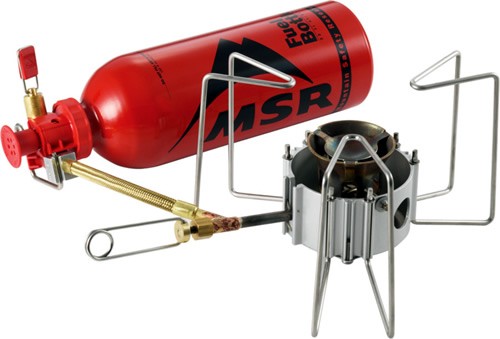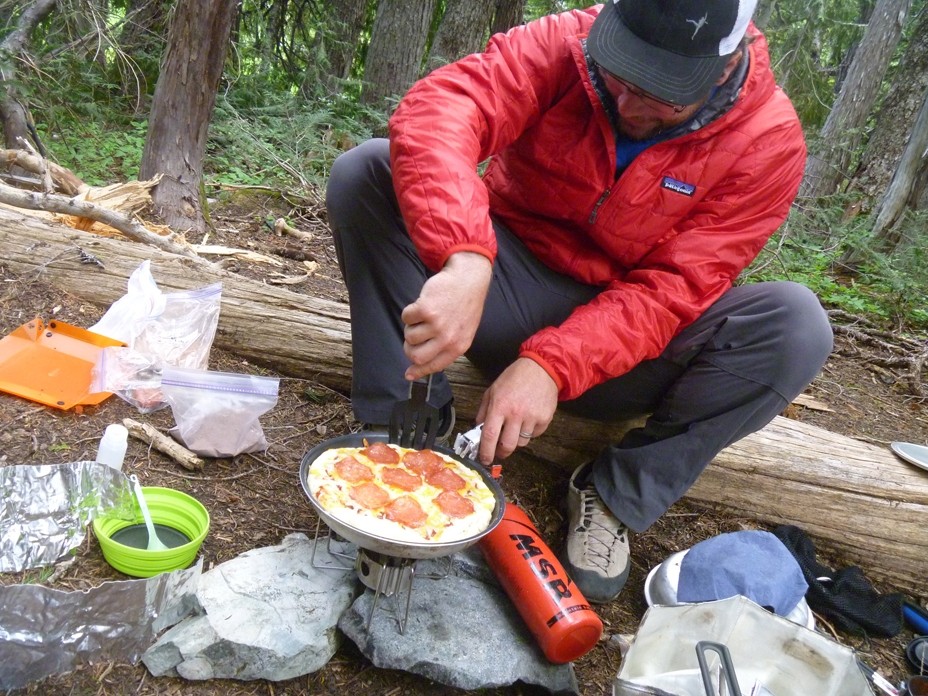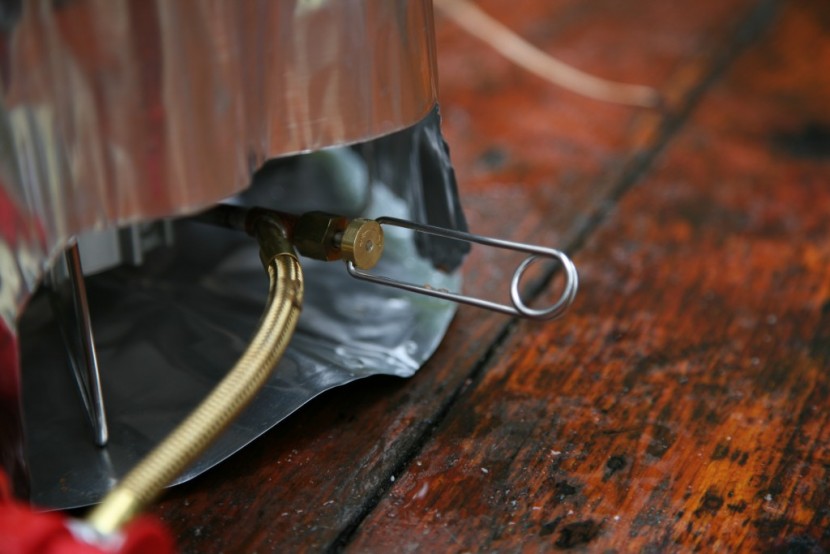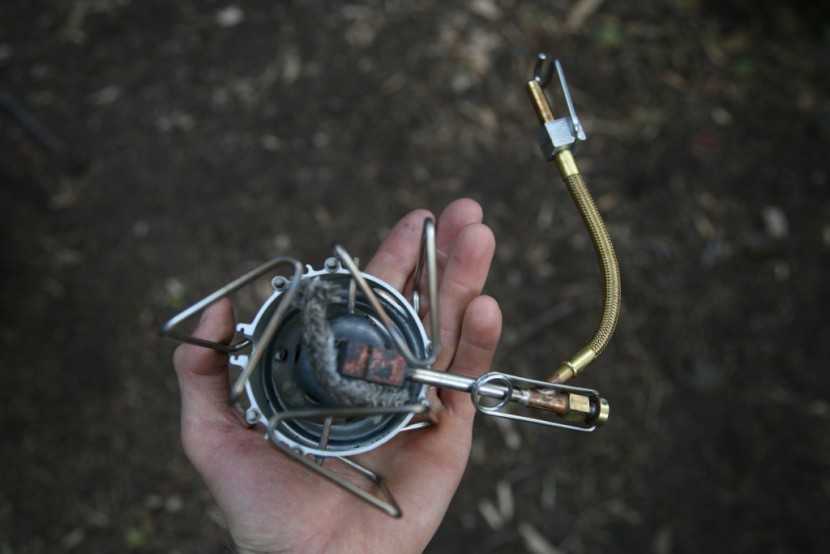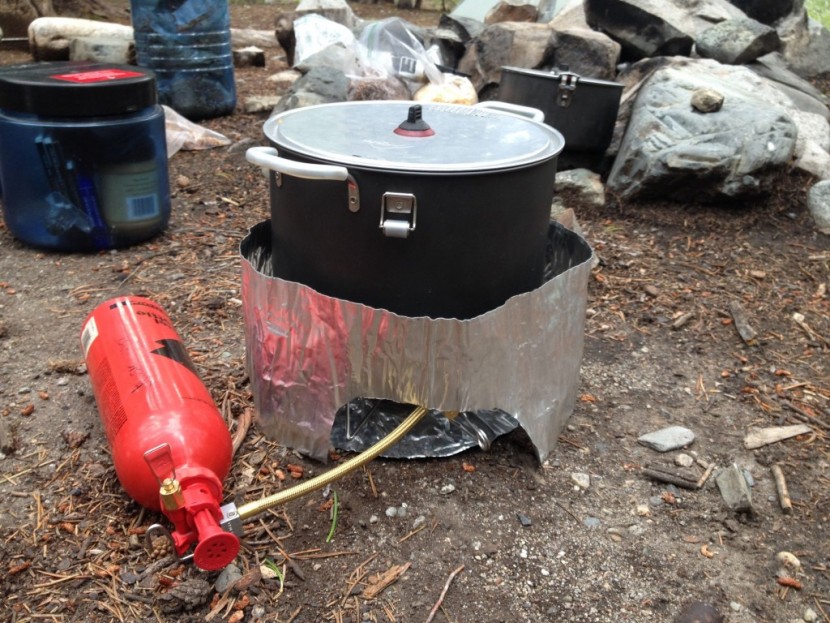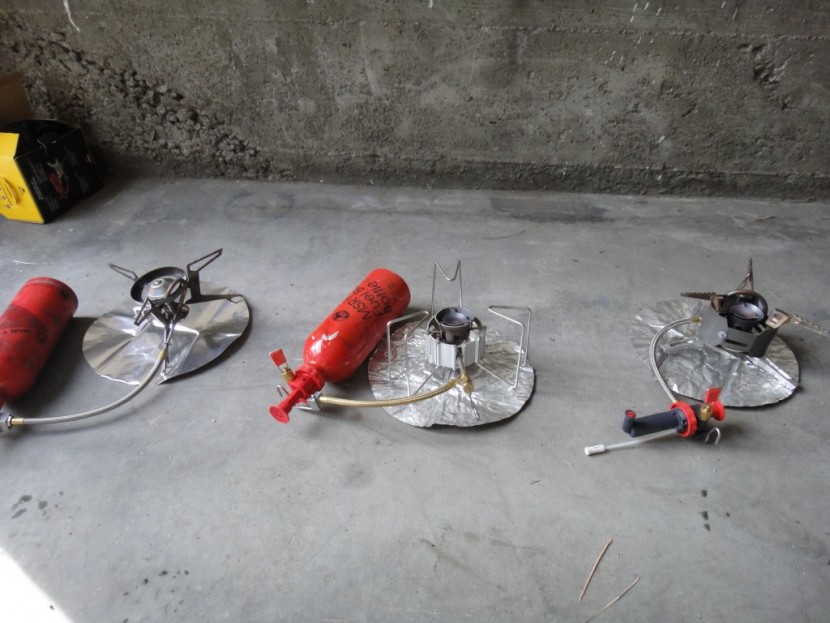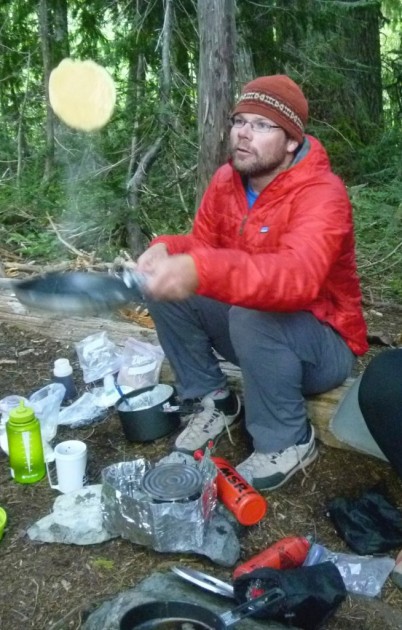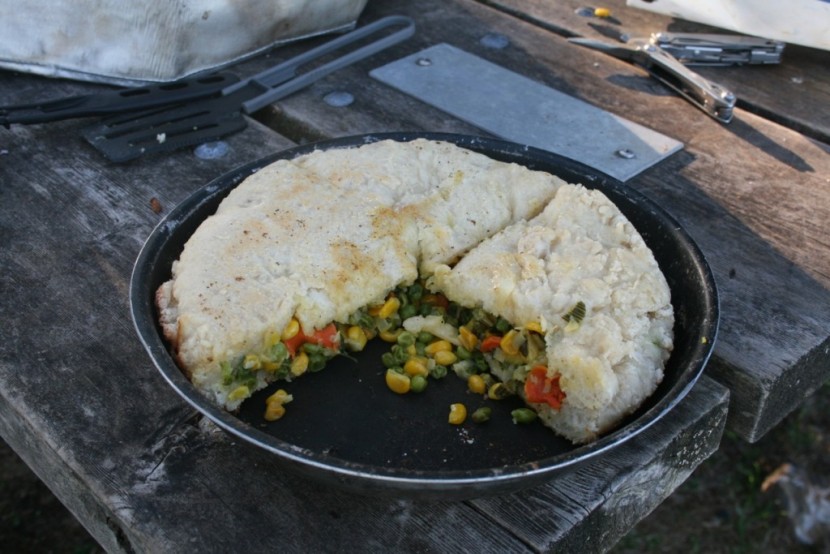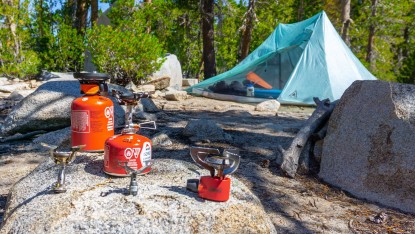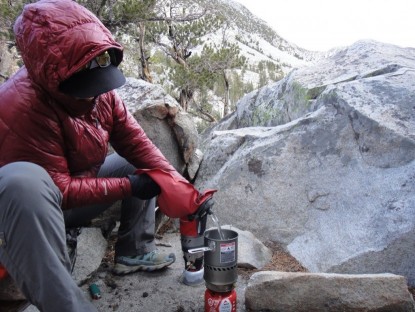MSR Dragonfly Review

Our Verdict
Our Analysis and Test Results
If you want to impress your camping partners with your cooking skills, grab a Dragonfly for your next gourmet backpacking adventure. This stove is great for expedition-style camping but too heavy and bulky for lightweight backpacking.
Fuel Efficiency
All liquid gas stoves are relatively fuel-efficient in the long run, but they require extra gas to prime. These stoves are not as efficient as integrated canister stoves because they do not have integrated, insulated pots with heat exchanging bottoms. They are, however, more fuel-efficient than small canister stoves because when properly used, the windscreen protects the flame from the breeze and also concentrates and reflects the heat back to the pot.
Because of its increased ability to control the flame height and temperature, we believe the Dragonfly has the ability to be more fuel-efficient because it doesn't have to be on full roar the whole time. In our boil tests at full throttle, it used 0.6 ounces of white gas to boil 1 liter of water with no wind, and the same amount in a 2 - 4 mph wind.
Weight
The Dragonfly is the heaviest stove in this review at 14 ounces. If you are out for an extended expedition or with a large group, the weight can be justified by a better cooking experience. If you are on an expedition that does not require you to carry your gear, like a horse pack supported trip or a paddling trip, we would recommend bringing this along.
Unfortunately, the Dragonfly is also the bulkiest of the white gas stoves at 6.3 x 5 x 3.5 inches. We find this stove annoying to pack away because its legs always want to spring back open, and it is awkward to stuff into its little sack. This stove, when packed up, will barely fit into a 2-liter pot, and only if you're strategic about getting its legs closed.
Simmering Ability
The main advantage of the Dragonfly is the ability to control the temperature, enabling you to simmer and cook more delicate items. This elegant powerhouse adjusts from a low simmer to a violent roar with a quick turn of the fuel valve. This feature leaves the fuel pump valve open and moves the control to a valve mounted on the burner unit. You can now simmer quickly and easily. We cooked pancakes, pizzas, sauces, and stews on this stove. We like that you can take it on international expeditions and can cook meals for large groups that entail more than boiling water, unlike with an integrated canister stove.
Ease Of Use
Liquid fuel stoves are inherently more complicated to use than their canister powered brethren. Some of our testers find the Dragonfly overall more finicky and less reliable on longer expeditions than other liquid fuel stoves, especially when snow camping and melting a lot of water day after day. Its fuel pump is different than any other MSR liquid fuel stove, which all share the same fuel pump design. This is unfortunate if you are familiar with repairing and troubleshooting these other stoves, and you cannot use these pumps interchangeably with the Dragonfly.
Our testers found this stove to be incredibly loud. One even likened the low sounds in its timbre to the distinctive low rumble of a Harley-Davidson. Choose this stove to bring on a trip with someone you don't want to speak with. Though the Dragonfly works best with white gas, it can burn other fuels in a pinch, including diesel and kerosene.
The control valve, which lives on the burner, is long and a good distance away from the flame, so there's low risk of burning your fingertips. The Dragonfly is the most stable stove in this review. Its unique arm design creates a wide and stable platform that is low to the ground, making the use of large pots for group cooking a possibility.
Boil Time
We tested all of our liquid gas stoves head-to-head in our garage, and we were as scientific as possible. After priming, the Dragonfly boiled water in 7 minutes, 35 seconds. The average priming time for liquid gas stoves is 1 minute 23 seconds, and the priming time for the Dragonfly is 1 minute 15 seconds.
Value
The Dragonfly is one of the priciest liquid fuel stoves in this review. We don't think it's a great value unless you really want to impress your companions with gourmet meals. Then it may be worth the few extra bucks.
Conclusion
There is no comparison with the MSR Dragonfly when it comes to backcountry cooking ability. This stove is a luxury item that enables gourmet cooking. Choose this stove when you are cooking for multiple people or need a stable platform and extra temperature control. Do not choose this stove if you want to have deep and meaningful conversations while cooking, or if you want to travel fast and light.


